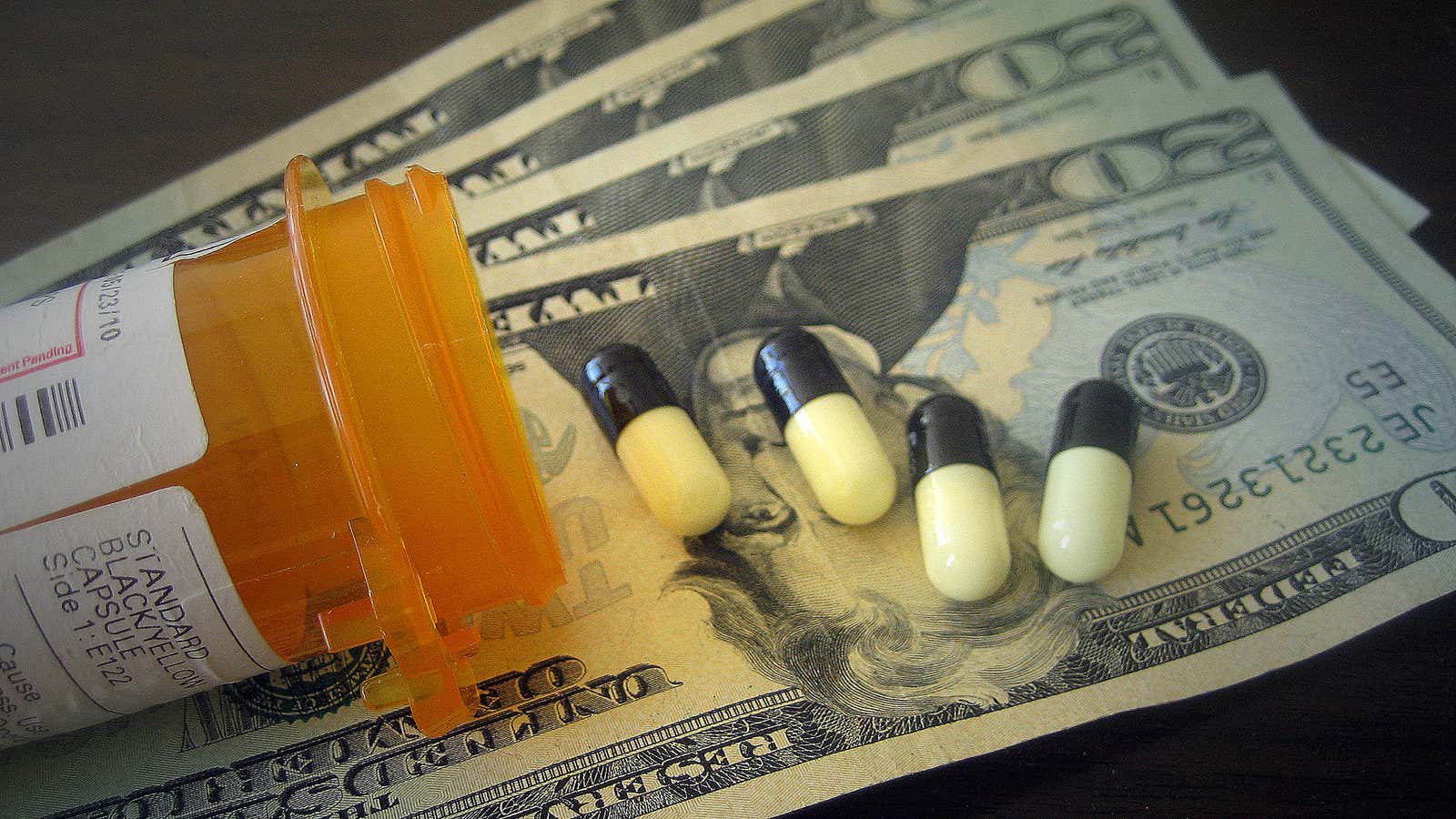Since it was created after the 1973 oil crisis, the US has tapped its Strategic Petroleum Reserve on only a few occasions. The reserve is meant to act as a cushion against supply disruptions, such as during the Arab Spring of 2011, or to pay down the deficit in desperate times.
On Friday (July 10), the House of Representatives agreed to tap the reserve to pay for the cost of a law—dubbed the 21st Century Cures Act—aimed at speeding up the discovery and development of new drugs. Unusually, both Democrats and Republicans enthusiastically agreed to the sale and passed the bill by 344 votes to 70 (paywall).
If the Senate also approves the act, the emergency oil reserve, which holds about $45 billion worth of crude oil, will need to sell enough crude over five years to finance an “innovation fund.” The fund will give about $9 billion to the National Institutes of Health (NIH) to setup necessary research programs and $550 million to the Food and Drug Administration (FDA) to create new processes for expedited drug approvals.
To be sure, there is an innovation crisis in the pharma industry that needs to be addressed. Put simply, there are fewer drugs being produced per dollar spent on research and development.
More money going towards the NIH should help bolster pharmaceutical innovation. But other aspects of the bill have raised alarm among pharma experts.
In the New England Journal of Medicine, Jerry Avorn of Harvard Medical School notes that the FDA’s drug-approval process is already pretty efficient, “evaluating nearly all drug applications within six to ten months, an impressive turnaround for such complex assessments.” But the 21st Century Cures Act wants to speed up the process further through use of biomarkers, which are specific indications such as tumor size or blood-glucose level, instead of complete-health outcomes in clinical trials, such as decrease in mortality. This, critics argue, will open the pharmaceutical industry to new attacks and may not be good for consumers anyway.
“Just because a drug shrinks a tumor doesn’t mean it enhances survival,” writes John LaMattina, a former senior research scientist at Pfizer. “If such a process is instituted, patients inevitably will be exposed to a drug that, after long-term usage, will have unforeseen damaging effects.”
“Who will be blamed for this? Certainly not the Congress,” LaMattina continues. “The biopharmaceutical industry will have to deal with a blow to its reputation at a time when the industry is trying to restore its good name.”
